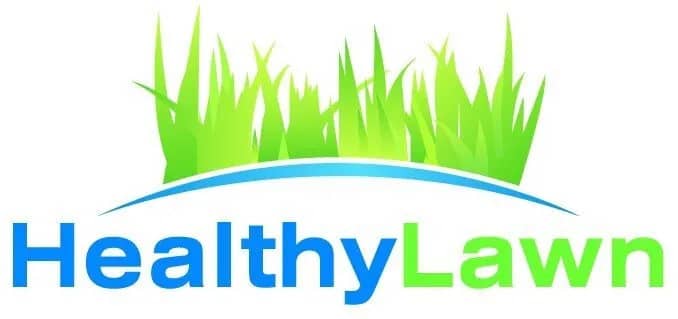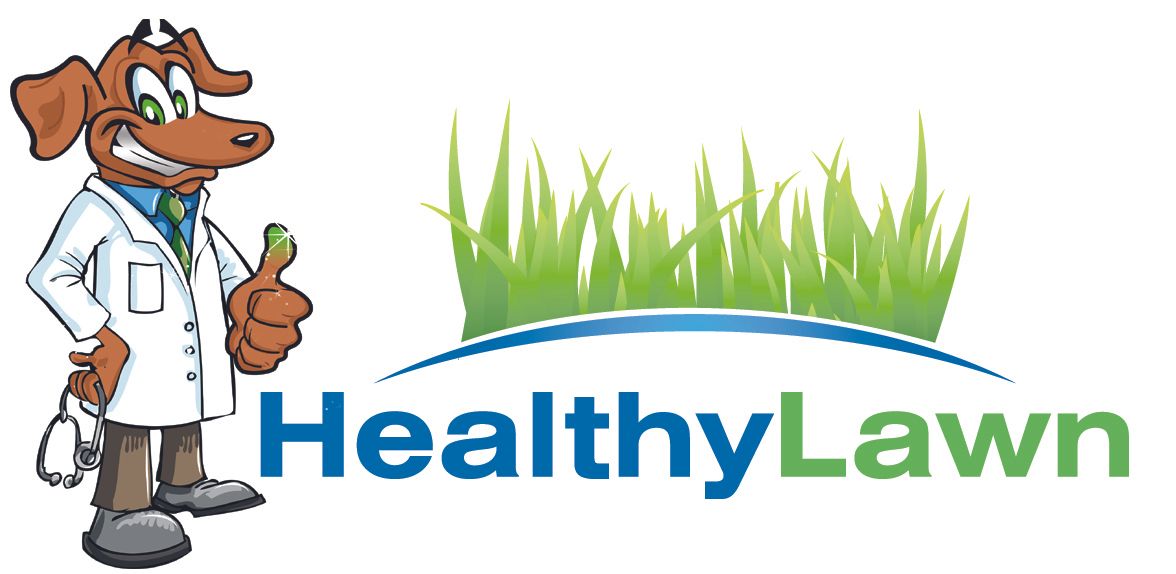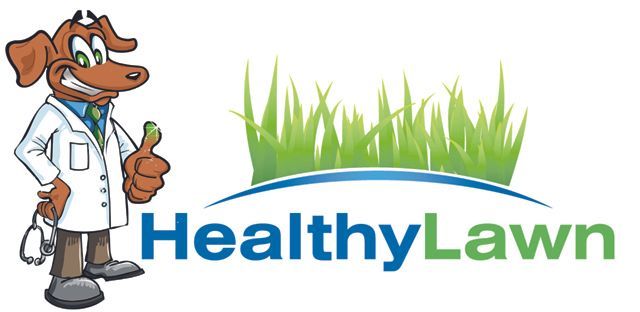8 Common Lawn Weeds in New Jersey: Identifying and Managing Unwanted Invaders
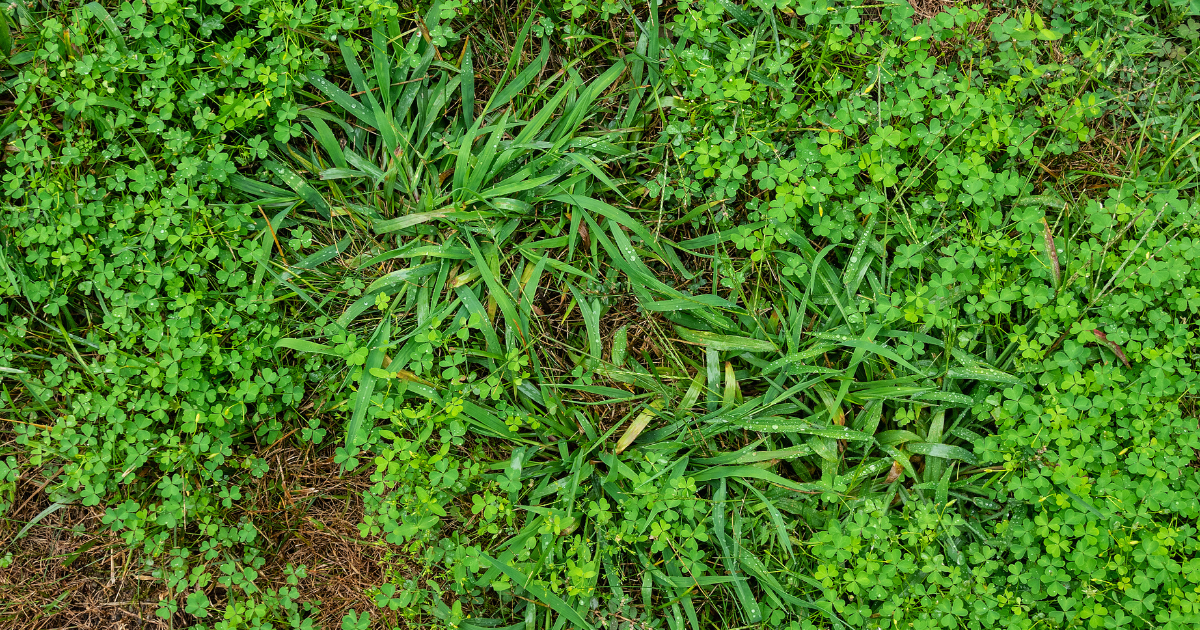
A lush, green lawn is the pride of any homeowner in New Jersey, but pesky weeds can quickly take over and mar its beauty. Understanding the most common lawn weeds in New Jersey is the first step towards maintaining a healthy and vibrant lawn. In this guide, we'll introduce you to the usual suspects and provide insights on how to identify and manage them effectively. Here are the common lawn weeds in New Jersey:
For additional images of these weeds, visit
Rutgers University Weed Gallery
Crabgrass (summer weed):
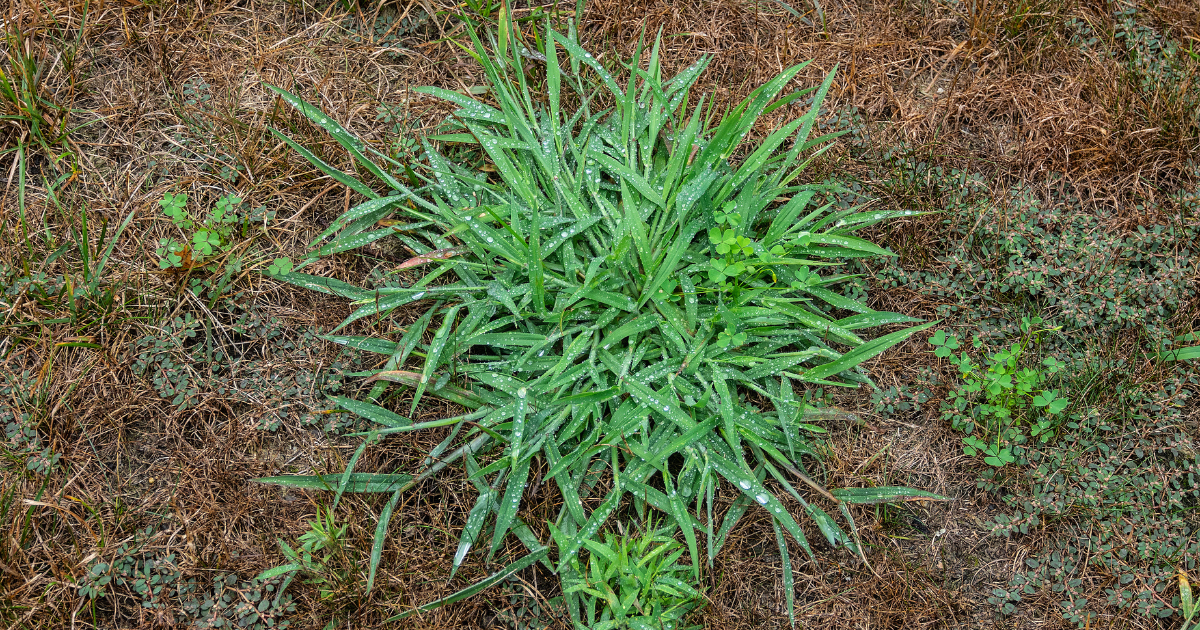
Crabgrass is a warm-season annual weed that tends to invade lawns across New Jersey. It features coarse blades and can quickly form unsightly clumps. This is one of the most common weeds found in lawns in New Jersey. They are common also root at the edge of patios, sidewalks, and driveways.
Management: Pre-emergent herbicides applied in the spring can prevent crabgrass from taking root, and post-emergent treatments can control existing growth. Crabgrass is one of the most difficult weeds to combat. Give us a call! We can help with this.
Dandelion (spring weed):
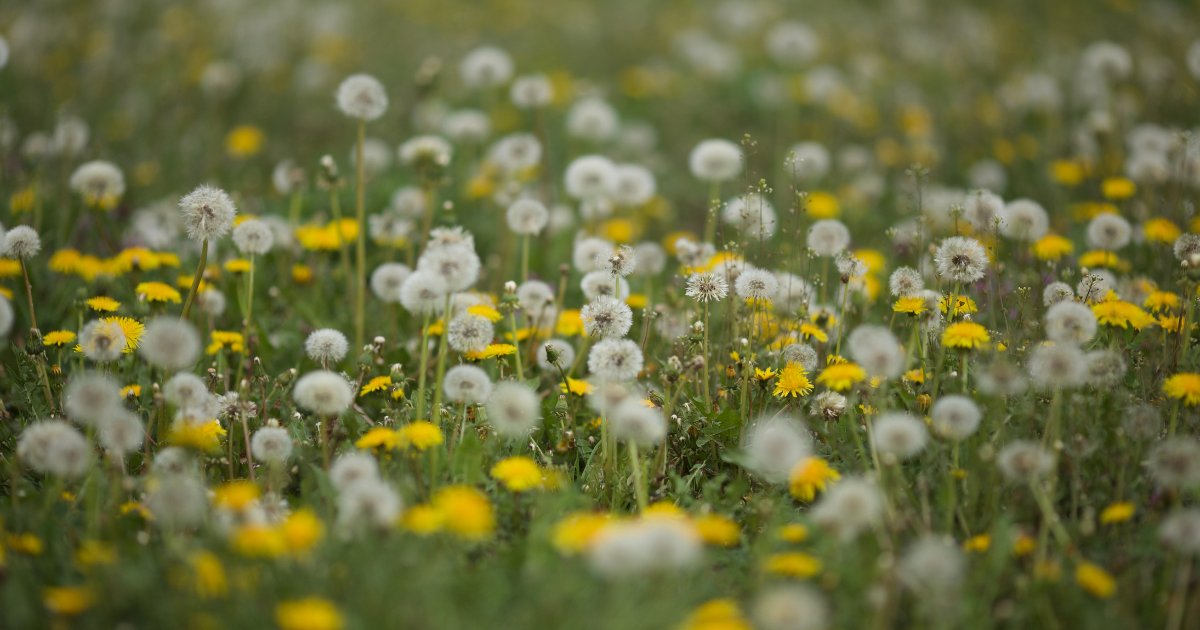
Dandelions are perennial weeds known for their bright yellow flowers and puffball seed heads. It is one of the most commonly known weed to homeowners in NJ. They can spread rapidly if not dealt with. However, they are one of the easier weeds to control.
Management: Hand pulling or spot treatment with herbicides can help control dandelions. Regular mowing can also prevent seed production.
White Clover (all seasons):
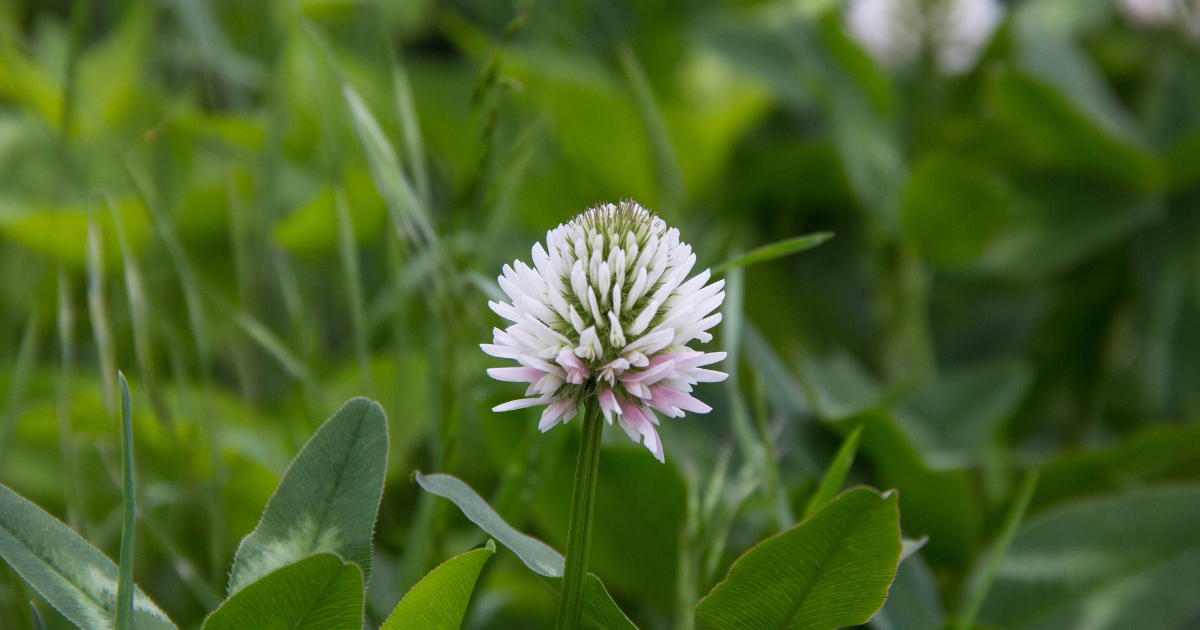
White clover is a perennial weed with small, white flowers and clover-like leaves. It often forms patches in lawns. White Clover weed can reseed itself, grow rapidly, and spread very quickly. This is a weed you want get under control as soon as they appear. It's probably best to utilize preventative treatment. They are also a very common bed weed. We can help with that! Give us a call!
Management: Broadleaf herbicides can effectively control white clover. Promote healthy grass growth to outcompete it.
Chickweed (spring / summer)
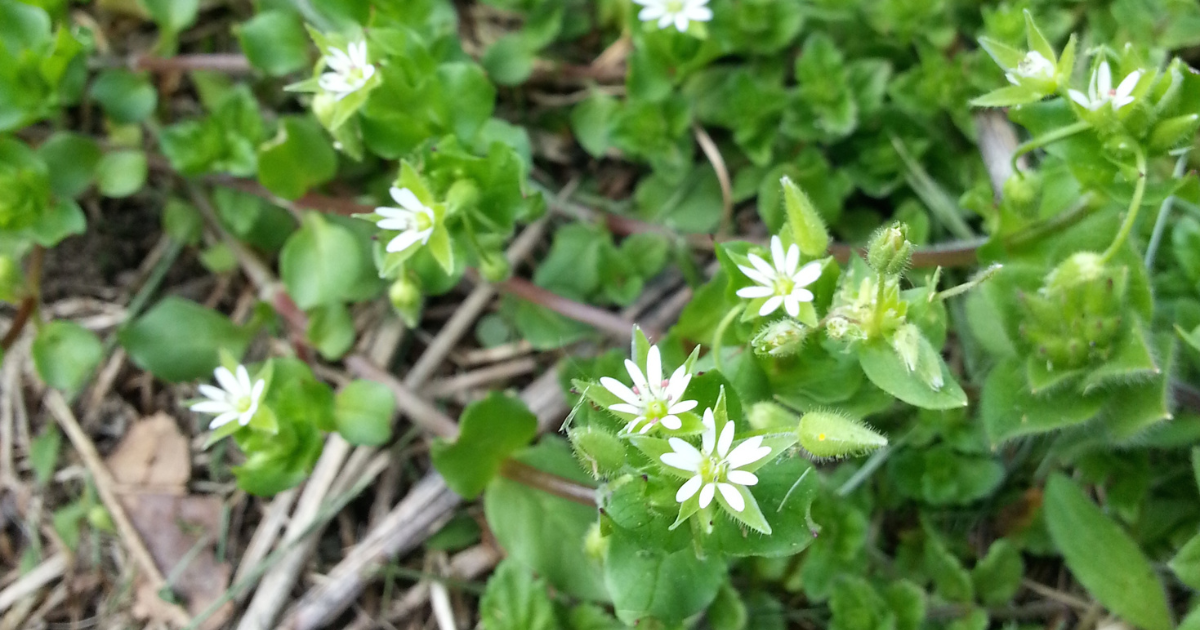
Chickweed is a low-growing annual weed with small, white flowers. It is a very common weed on residential lawns. Moisture, shade, and low cutting habits will encourage weed growth.
Management: Regular mowing and hand weeding can help control chickweed. Herbicides can be used for severe infestations. After a couple of summer mows chickweed will die off.
We offer lawn care, weed control, and fertilization programs that will help combat weeds and give you a vibrant lawn. We also have an instant quote feature that we offer for all our services. Get a quote today! It's fast, easy, and FREE. Click below to learn more about our weed control programs. We can handle all of common lawn weeds in New Jersey!
Creeping Charlie aka Ground Ivy (spring & summer):
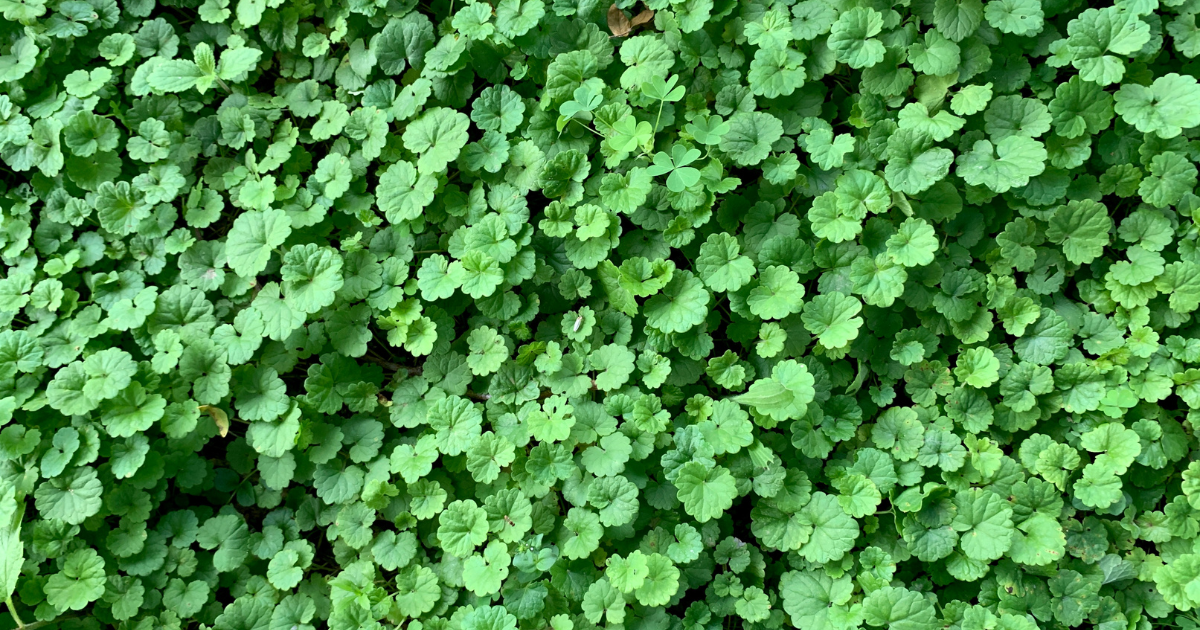
Also known as ground ivy, creeping Charlie is a creeping perennial weed with round leaves and purple-blue flowers. This weed is particularly difficult to control. Ground ivy weeds prefer damp, shady areas, but can tolerate full sun.
Management: Broadleaf herbicides can be effective in controlling creeping Charlie, but it may require multiple treatments. These weeds are difficult to deal with- give us a call. We can handle them for you!
Annual Bluegrass (spring and fall):
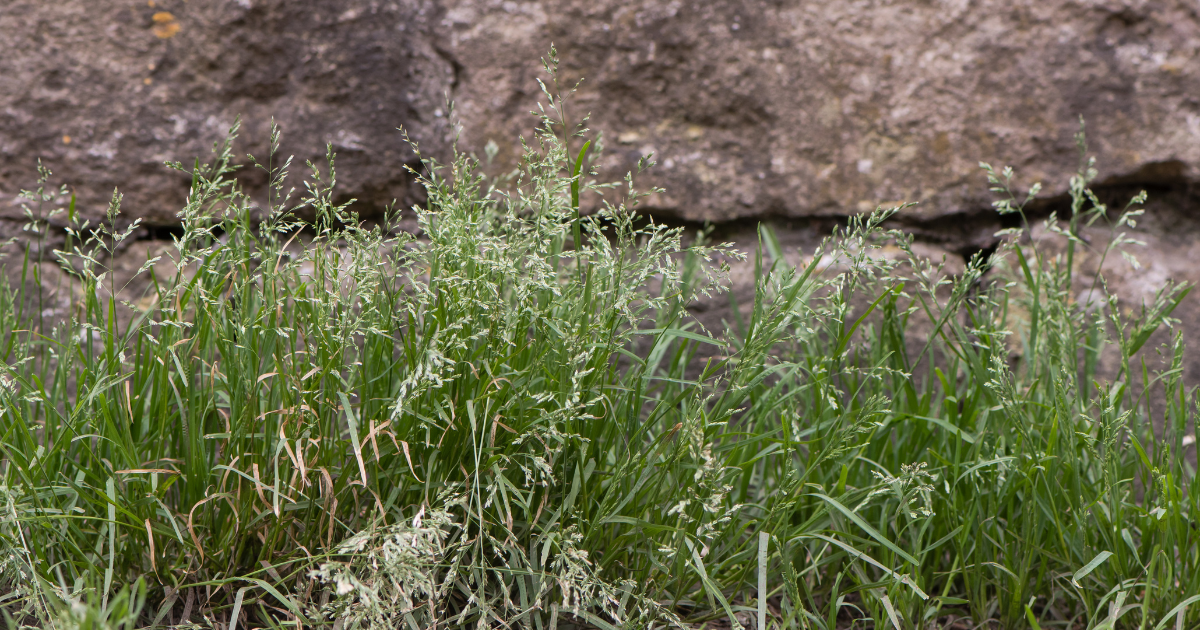
Annual bluegrass is a cool-season grassy weed that forms unsightly clumps. Conditions that favor Annual Bluegrass are cool, moist conditions, compacted soil, and lowing that is too low.
Management: Regular mowing and proper lawn care practices can help prevent annual bluegrass infestations. Also, be sure to avoid overwatering and try to improve drainage wherever possible. To prevent nutsedge proper lawn care practices should be followed, such as mowing at the correct height, fertilizing your lawn, and applying pre-emergent herbicides regularly.
Yellow Nutsedge (late spring and summer):
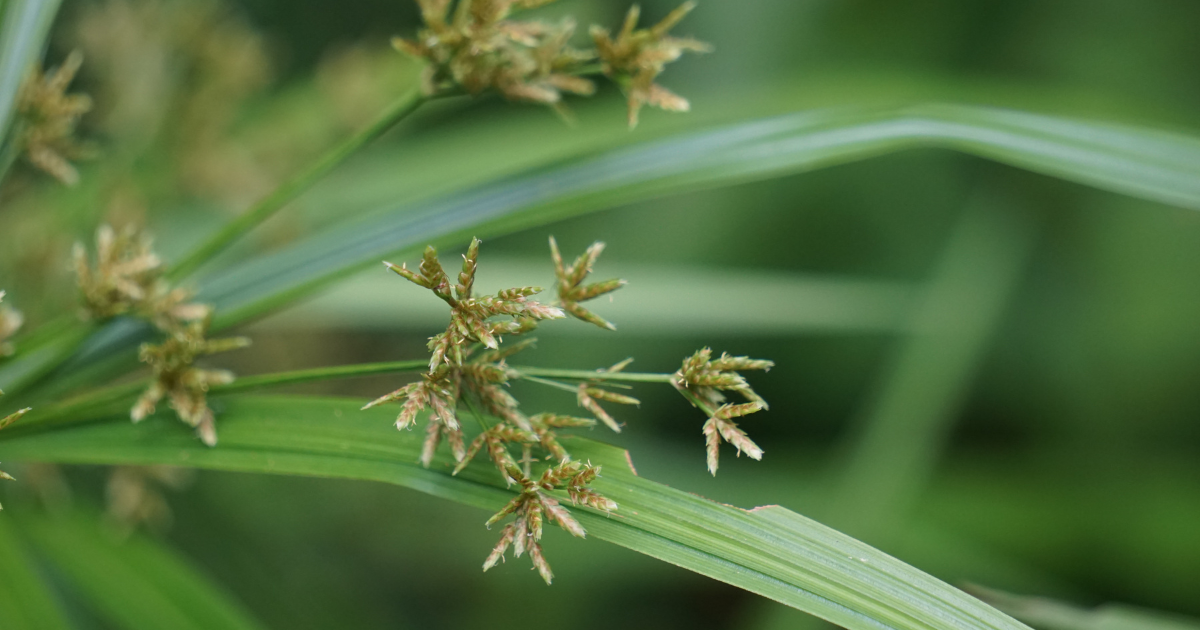
Yellow nutsedge is a fast-growing perennial weed with triangular-shaped stems. It is also commonly known as "nut grass" and is classified as a grassy weed. Nutsedge grows rapidly and will become visible a few days following a mowing. It's one of the most difficult weeds to manage.
Management: Herbicides designed for nutsedge control can be effective, but multiple applications may be necessary.
Purslane (summer):
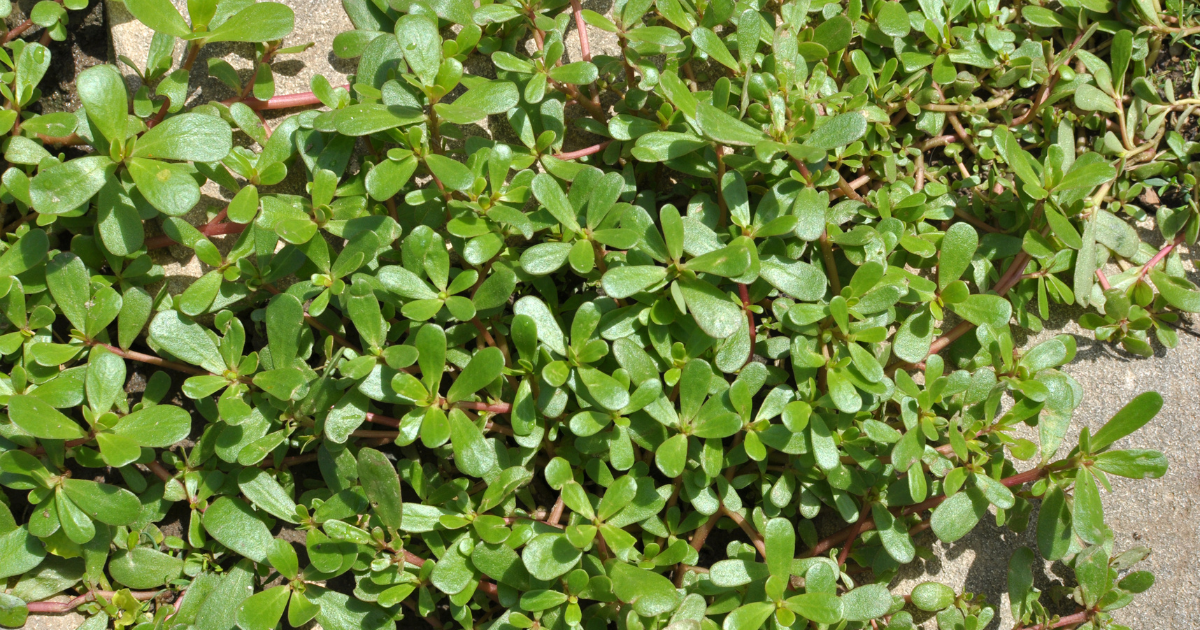
Purslane is a summer annual that forms low growing mats of succulent stem and leaves. Purslane produces small yellow flowers in later summer. This common lawn weed can be found in landscaping beds, newly seeded or thin turf areas, or cracks in pavement.
Management: Post-emergent herbicides can take care of these weeds very quickly and easily. It's always best to take a preventative approach.
These are the most common weeds in New Jersey. Weeds invading your lawn? Not to worry! Here at Healthy Lawn we can treat these common invasive weeds! Contract us today!
